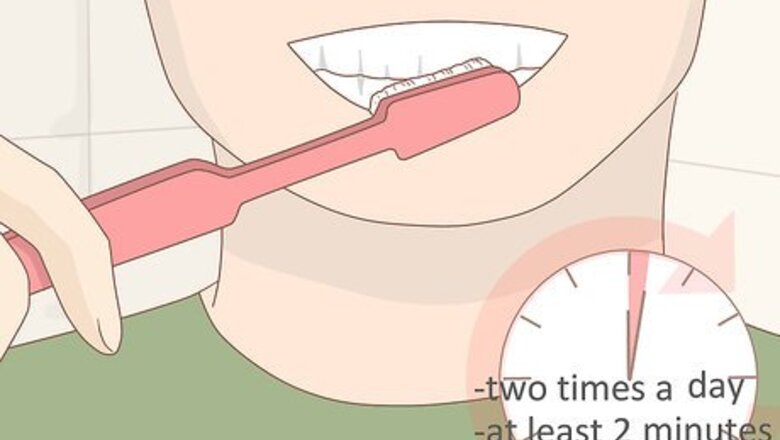
views
Creating a Morning Routine
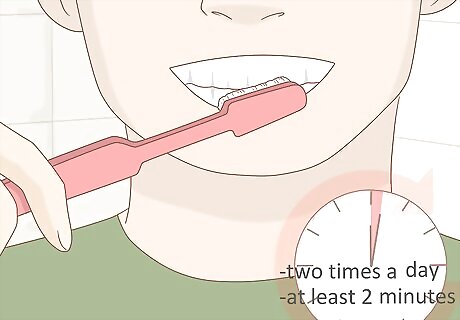
Brush your teeth. Keeping the surface of your teeth clean can prevent cavities and gum disease. Use a soft-bristled toothbrush and a fluoride toothpaste. Brush at a 45-degree angle against the gums and in circular short back-and-forth motions. Brush for at least 2 minutes. Make sure to brush your molars, outer tooth surfaces, and inner tooth surfaces.
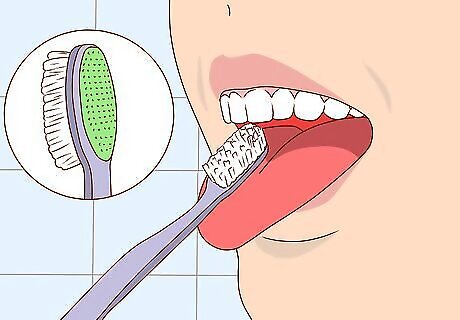
Brush your tongue. Brushing your tongue can reduce bad breath by removing bacteria and food particles. Use your toothbrush bristles or a tongue scraper. Some toothbrushes have a tongue scraper on the back.
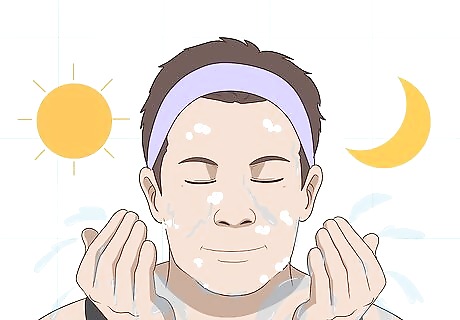
Cleanse your face. Washing your face daily will remove accumulated dirt, bacteria, and oil. Buy a suitable cleanser for your skin type. You can get varying cleansers based on whether your skin is oily, dry, or sensitive. Wet your skin and massage the cleanser on your face. Gently wash off the cleanser with warm water.
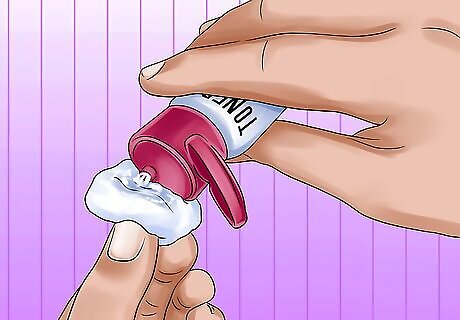
Use a toner. A toner can further balance and replenish your skin by adding nutrients. Saturate a cotton pad with the toner and pat onto face, avoiding your eye area. You can also apply the toner with clean hands, if you do not have cotton pads.
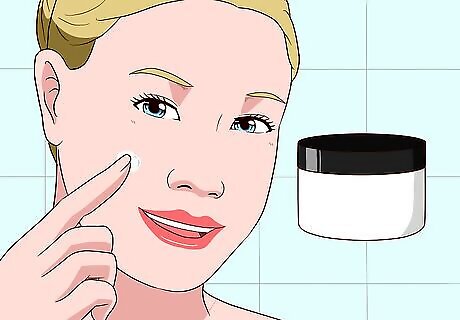
Moisturize your skin. A moisturizer rehydrates and softens your skin after cleansing. Pick a suitable moisturizer for your skin type. Use cream, or oil-based moisturizer for dry skin. For oily skin, use gel or water-based moisturizer.
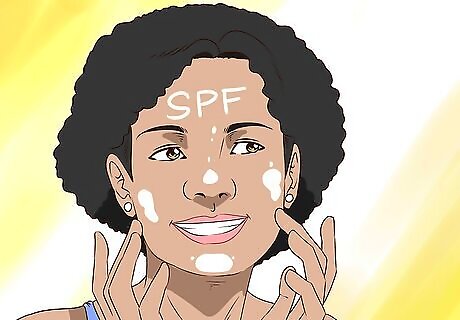
Wear sunscreen. UV light from the sun can cause skin cancer or add more wrinkles. Choose a sunscreen with a broad spectrum SPF of at least 30. Apply sunscreen evenly 15 to 30 minutes before sun exposure. Reapply sunscreen at every 2 hours, especially if you are participating in outdoor activities like sports.
Creating a Mid-day Routine
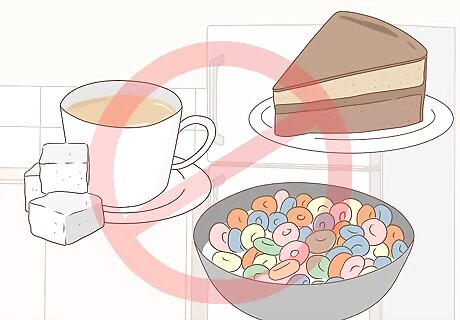
Eat healthily. Poor nutrition can increase susceptibility to gum diseases. Improving your diet can prevent tooth decay and gum diseases. Limit acidic beverages like soda and fruit juices. Food acids can erode the teeth enamel causing cavities. Reduce sugar intake like ice cream, brownies, and cookies. Bacteria can ferment sugar and produce acid that will damage your teeth.

Drink more water. Dry mouth occurs when you do not have enough saliva to keep your mouth moist, which can lead to tooth decay and infection.Drinking water can further hydrate your skin, and rid your skin of toxins. Drink 8 glasses of water. Set a reminder to drink water, or carry a water bottle with you.
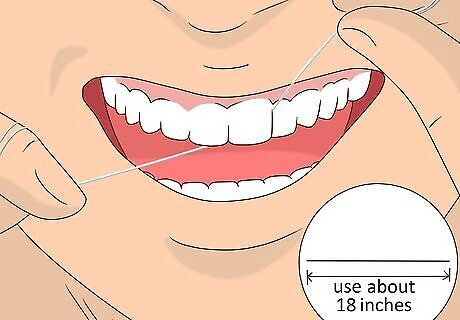
Floss after meals. Flossing allows you to clean the tight spaces between your teeth and gums, which can prevent build up bacteria that cause plagues and gingivitis. Use about 18 inches of dental floss. Hold floss tightly between your thumbs and forefingers. Gently guide the floss up and down between your teeth. When the floss reaches your gum line, curve it against one tooth, making a c shape. Floss one tooth at a time.
Creating a Nighttime Routine
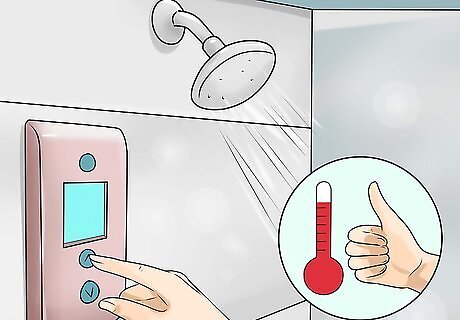
Take a steam shower. Warm, steamy showers can increase blood flow, improve immune function, and ease muscle aches and pains. A steamy, night shower can also help you sleep. Turn on the hot water in the shower. Close the bathroom door and windows to capture steam and increase humidity. Lower the water temperature from hot to warm. Go in and shower.
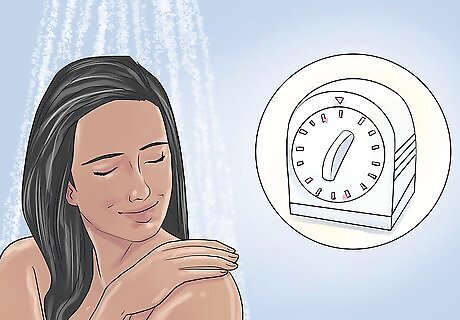
Keep it short. Showering for too long can strip the skin of oils and moisture, resulting in dry, flaky skin. Shower for 5 to 10 minutes. You could time your showers with a music playlist or an alarm.
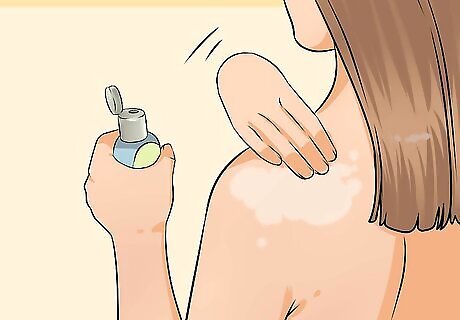
Moisturize your body. After showering, you should rehydrate your skin with a moisturizer to prevent dry skin. Use lotion or oil-based moisturizing cream. Apply moisturizer within 3 minutes of showering to allow better absorption of the moisture.
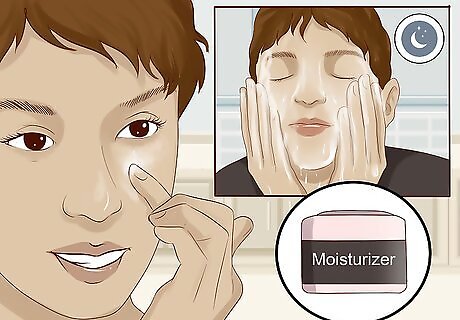
Repeat your skincare routine. Cleanse, apply toner, and moisturize your face again.
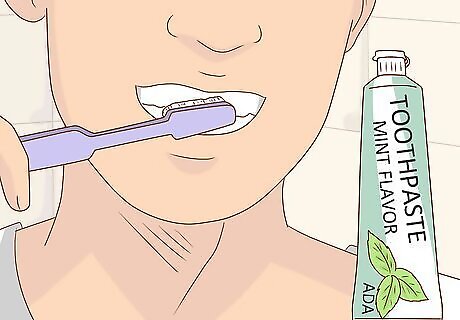
Repeat your dental routine. Brush your teeth and tongue.















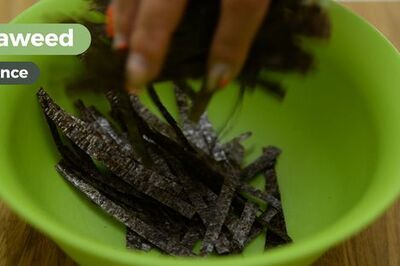

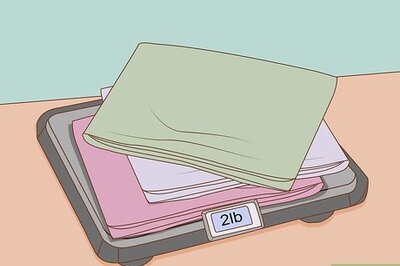

Comments
0 comment